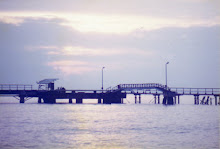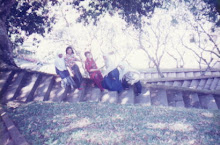Waste problems are common problems that must be addressed in synergy by the government, businesses, and communities. He emphasizes waste management starting from the manufacturers. Garbage should be the responsibility of each. Immediately end land use permit end disposal place (TPA) in District Sarimukti CIPATAT, West Bandung regency (KBB), in 2018, will be the main obstacle in the handling of waste matter in the city of Bandung. Given the limited land owned by the city. The planned use of the Village Legoknangka area Ciherang, Nagreg district, Bandung regency landfill that will be shared, also still has constraints. One of them is about the cost of transporting waste.
But what power, the city of Bandung has no more land to be landfill. Since long, many pundits speculated would be a problem in waste management in Bandung. Landfill system is no longer considered appropriate to address the garbage problem. Various alternative solutions were emerging, ranging from systems implementation 3R (reduce, reuse, recycle), composting, to processing waste into electrical energy. PT Bandung Raya Indah Lestari (Bril), a private company, offers a solution to the problem of garbage in the city of Bandung with the proposed construction of power plants waste (PLTSa).
The emergence of the idea was not without consideration. According to the Director of PT Bril, Soenaryo Yoseph, his party and the government of Bandung at first did not just think about as a solution to the problem PLTSa Bandung garbage. "We briefly considered the 3R system, making compost and organic fertilizer. Everything has been thought strengths and weaknesses," said Yoseph in Bandung, Saturday (31 / 1).
3R principle, says Joseph, is still considered the best, because it can create something that empowers people have not been used in order to be used again. However, in practice, the application of 3R requires high awareness of the whole community and should become a culture. "To cultivate something takes very long time, whereas our current garbage piling up," he said.
Meanwhile, to process waste into organic fertilizer that requires high technology investment cost is too great. From another perspective, the composition of the waste the city of Bandung is also not supported to be able to produce organic fertilizer. "It also applies to making compost, compost production technology especially the most modern, fastest takes 15 days. That means we need a fixed land to accommodate the waste collected for 16 days. Not to mention the problem of marketing the compost produced," said Yoseph explains .
From all these considerations, finally PT Bril and the government set PLTSa Bandung as the best solution in solving the garbage problem. This decision was considered as a reasonable step by environmental experts from the Center for Industrial Engineering, Institut Teknologi Bandung (ITB), Ari Darmawan Pasek. According to Ari, each city / district must have its own considerations in the determination of their waste solution, in accordance with existing conditions.
Without these considerations aside, members of the Board of Forestry and Environmental Observer Tatar Sunda (DPKLTS), Sobirin Supardiyono rate, the waste issue is a matter that must be addressed together in synergy by the government, relevant agencies, and communities. For that, he emphasized that waste management starting from their respective manufacturers. "We're talking in the context of households in the community that became the source of waste production early. Garbage should be the responsibility of each," he said.
According to Sobirin, the weight of garbage produced in the city of Bandung is now nearly matching the weight of 1000 elephants. "If the spread, plastic garbage each day to cover 250 football fields. The paper pulp is made in the amount of offset the amount of pulp from timber tree 500. In other big cities are not much different circumstances. However, a special Bandung in waste problem because of geographical conditions of the central basin and the human community, "he said. The problem was, said Sobirin, will not be complete if the nearly 90% of the population of Bandung still do not care about their waste, such as right now. "They're just hoping the officer transported the waste, because it was already paid fees. They do not know, PD Hygiene conditions are not ideal sometimes. There are times when truck broke down because of damaged spare parts and all kinds of other obstacles, "said Sobirin. He acknowledged, in order to realize this is the need to survive in the long term."
Though many say the 3R's just a slogan, but if implemented can be seen the results. What is important, there is confidence, awareness, and the desire for profit, moral contract, real action, and familiarization. If it was filled, I'm sure everyone can come true even spent a generation or about 30 years, "he said. View current conditions, Sobirin appreciate all the government's plan to address the continued mounting garbage. Including the construction of the landfill instead PLTSa. "But we will never know PLTSa is good or not if not try on a small scale. If it was a good result, shown to the public and continue. If not, it must be stopped," he said. Regarding the possibility of testing small-scale PLTSa, Joseph said that the decision in the hands of government. However, for implementation, need to die as an investment to build roads at least Rp 35 billion. "Investment PLTSa not a profitable business investment.
For small-scale, investment certainly will not return. However, we actually do not need to hesitate and try on a small scale. After all, large scale existing in foreign countries has proved to be good and running without interruption, "he said. When asked about the profits to be earned as the manager later PLTSa, Yoseph did not deny that there are benefits even if there were not large. PLTSa Gedebage For the capacity production of 500 tons of waste / day and produces about 6 mw of electricity, PT Bril be issued with an investment of Rp 300 billion (calculated in 2005).
According to Yoseph, from a sewage treatment fee income and the proceeds generated electricity, the new investment will be back in 12-15 years time. "Therefore we ask for time management 20 years. It's a long time and fortunately not much. However, this is not just a business, but our awareness of the citizens of Bandung to the problem of waste. If you count the pros and cons, there are many more profitable investment, "Yoseph said. (Handri Handriansyah / "PR")



No comments:
Post a Comment